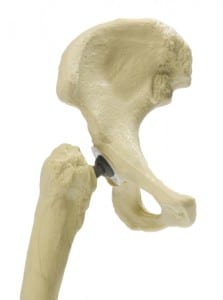Metal-on-Metal Hip Replacement Manufacturer Smith & Nephew Voluntarily Recalls Metal Liner
In June 2012, metal-on-metal hip replacement manufacturers Smith & Nephew voluntarily recalled a metal liner component of their hip replacement system, Acetabular. The recall does not affect the R3 System Liners.
According to a press release on Smith & Nephew’s website, Andy Weymann MD, Smith & Nephew’s Chief Medical Officer, said: “We regularly review the effectiveness of our products and are not satisfied with the clinical results of this component. As with all medical devices, anyone experiencing unusual symptoms should contact their surgeon.”
7,700 metal liners have been implanted since the component was introduced in 2007, then launched globally in 2009. Smith & Nephew says that follow-up care for patients who have this component does not change because of the recall.
The recall was issued due to patients reporting infections, fractures, and dislocations. There has also been a rise in revision surgeries to replace the recalled metal-on-metal hip replacement component. Statistics show that the revision rate for the metal-on-metal hip replacements is 6.3% over four years, which is higher than the average for other total hip replacements, which is 2.89%.
Smith & Nephew is the fourth largest manufacturer of hip replacement implants in the United States.
Complications with the Metal-on-Metal Hip Replacement Devices from Smith & Nephew
Common problems with metal-on-metal hip replacement devices include infection, pain that prevents walking or sitting comfortably, tissue degradation, and, worst of all, metallosis – when metal shards leak into the blood stream and cause metal poisoning, resulting in organ failure.
Studies by the Australia’s National Joint Replacement Registry, and the UK’s National Joint Registry, did not find evidence of metallosis due to Smith & Nephew’s metal-on-metal hip replacement liner, but they did see evidence of “metal sensitivity,” which is a warning sign of metallosis.
After the voluntary recall, the company issued a “hazard alert” letter to doctors who implanted the metal-on-metal hip replacement liners, noting that the recall was a “precautionary step.” The letter recommended that doctors check in with these patients to ensure the liners were not causing complications.
The FDA issued a warning to Smith & Nephew in 2010 for this metal-on-metal hip replacement liner. The warning specifically stated that Smith & Nephew did not follow protocol in documenting manufacturing procedures, including sterilization of the machines used to manufacture the titanium rings. The agency noted that batches of the product did not meet sterilization requirements.
 Personal Injury Lawsuits Against Smith & Nephew Metal-on-Metal Hip Replacement Devices
Personal Injury Lawsuits Against Smith & Nephew Metal-on-Metal Hip Replacement Devices
Starting in 2009, personal injury lawsuits against Smith & Nephew began rolling in. The company now faces 4,000 lawsuits because of complications related to the recalled liner. If you or a loved one have received a metal-on-metal hip replacement device from Smith & Nephew, and have since experienced painful side effects including metal sensitivity, infection, pain while walking, and eventual revision surgery, you may be entitled to compensation. The defective device attorneys at the Strom Law Firm can help. We understand that medical complications can ruin your life – you could lose your job, mobility, and your enjoyment of life. Do not let a metal-on-metal hip replacement device ruin your future. We offer free consultations to discuss the facts of your case, so contact us today. 803.252.4800.


